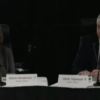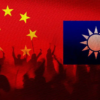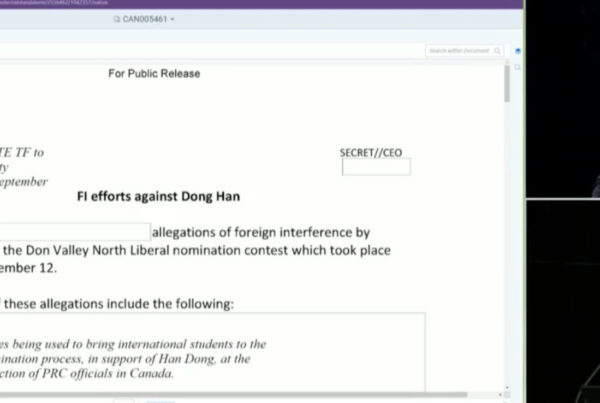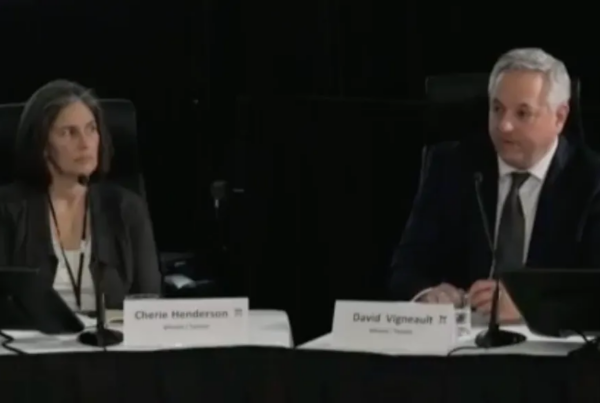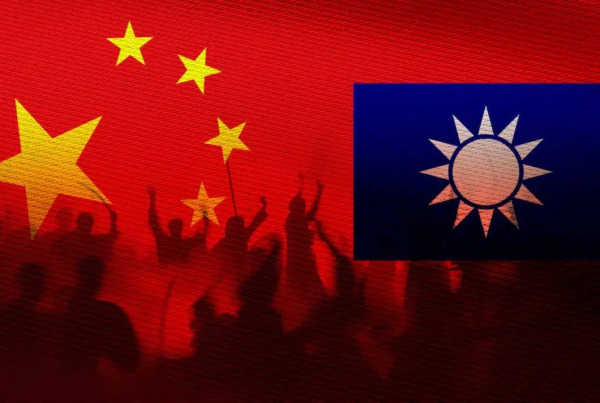Remarks by Richard B. Fadden, Director, Canadian Security Intelligence Service, to the Canadian Association for Security and Intelligence Studies (CASIS) Annual International Conference 2009-10-29. It is an admirable speech.
Good afternoon everyone. It is a real pleasure to be here, particularly since this my first “outing” since becoming Director of CSIS. I’m mindful of the fact that, since you’ve already had lunch, this is probably a dangerous part of the afternoon so I’ll try and say some things to keep you alert and not falling asleep.
Let me start by saying that I hope that you will indulge me in wishing my own organization a happy 25th Anniversary. Just over a quarter century ago, in June1984, the CSIS Act received Royal Assent and came into effect on July 16 of the same year. After a long, energetic and often emotional passage through Parliament, our founding legislation was given life, and we began to operate as a civilian national security agency.
Our legislation was, in many respects, ground-breaking: it placed intelligence-gathering on a firm legal footing but set clear controls and limits on our powers, thereby protecting the civil liberties of Canadians.
I would note, of course, that the birth of CSIS, however, was actually the birth of triplets, because two review bodies, the Security Intelligence Review Committee (SIRC) and the Inspector General, were also created and defined in the CSIS Act.
As with all anniversaries, there is a tendency to be nostalgic, to ask if the marriage has been a success. I am pointedly not going to do that today, because I think that for the most part, debates around intelligence in Canada are stuck in the past.
In order to protect the security of Canada, we have to be mindful of the past, but we have to move on. We have to move out of our comfort zones and look squarely to the future. In other words, I intend to blow out the candles on the anniversary cake and then talk about where we stand and where we should be going.
It’s a great pleasure to be here today because we can engage in serious discussions about national security with some of the best thinkers in Canada and around the world. It’s fair to say that there is not another conference like this one. CSIS is proud, along with its government partners, to support this gathering, because we believe in the power of research, ideas and debate.
We are constantly searching for ways to be a smarter, more aware organization, and our association with you helps us do that. I would like to mention that we set up last year an Academic Outreach Branch that is playing an increasingly important role in bringing together analysts, academics and policy makers to study the most vexing security questions of our time. Recent conferences at our headquarters on Pakistan, Iran and China have drawn world-class thinkers, and we are grateful for the participation of many in this room in these events. I encourage everyone to read the conference proceedings that are posted on our web site.
This gathering of experts, however, and the depth of debate you engage in, is a rarity, and to a certain extent, an aberration in Canada. And that brings me to the first major theme I’d like to develop today. For a G-8 member and important middle power with a long history of positive engagement in the world, debate about national security in Canada is, for the most part, fairly sparse. Our elites tend to ignore it altogether.
Our universities, with some quite wonderful exceptions, don’t devote many resources to it, and the number of journalists who write about it on an almost full-time basis can be counted on the fingers of one hand. And when we do engage in debate on the subject, it is often stuck in concepts that simply don’t reflect contemporary realities.
In countries that have lived with terrorism, and have seen its effects up close, the reality is different, and the debate is often fulsome. But not, I suggest, in Canada.
And yet, we can’t forget, Canada has seen its share of terrorism. You know this, so I hope you’ll bear my repeating some of these: 329 people, the vast majority of them Canadian, died in the bombing of Air India Flight 182 in 1985, shortly after CSIS was born. We are inextricably linked to that event, and practically share the same anniversary. Also in the 1980s were the attacks on Turkish diplomats in Canada, including the murder of one, and the storming of the Turkish Embassy in Ottawa which resulted in the death of a Canadian guard.
Twenty-four Canadians were killed in the attacks on the twin towers in September, 2001. In the intervening years, terrorism with a nexus in Canada could have resulted in many more deaths, both in Canada and around the world. In June, 2006, a group of young men were arrested in Toronto on charges under the Anti-Terrorism Act, accused of plotting serious terrorist acts on Canadian soil.
There have been five convictions or guilty pleas to date and these cases continue to work their way through the courts. In March of this year, Momin Khawaja was sentenced after being convicted of financing and facilitating terrorism and building explosive detonators for use in terrorist attacks.
Earlier this month [October, 2009 – JT], Said Namouh was found guilty in Quebec for his role in planning terrorist acts outside of Canada. So Canada, I think it is crystal clear, is neither immune from terrorism nor untouched by its effects.
You would not know this to be true, however, when you look at how Canadians discuss matters of national security. Our elites tend to avert their eyes, and media tend to give what little coverage they grant on this subject to groups that seem to feel that our charm and the Maple Leaf on our backpacks are all that we need to protect us.
It’s a curious stance, given that Canadians accept almost all other trappings of the global system. We are a trading nation, selling, buying and investing in every corner of the world. We believe in diplomacy and international development, and devote considerable energy to making the international system strong and functional through its multi-lateral institutions. We are peace-keepers, peace-makers and combatants along with our allies when the international order is threatened. Some of these activities are fully accepted by Canadians, while others are controversial, but they are at least debated with some reason. We believe in democracy and human rights, and we believe in protecting those values with all the tools at our disposal. In that sense, we endeavour to live up to our national self-image as citizens of the world who are connected to its realities, good and bad.
And yet, I suggest we have a serious blind spot as a country. Many of our opinion leaders have come to see the fight against terrorism not as defending democracy and our values, but as attacking them. Almost any attempt to fight terrorism by the government is portrayed as an overreaction or an assault on liberty. It is a particular position, given that terrorism is the ultimate attack on liberties. If terrorists believe in anything, it is nihilism and death, and they are truly equal opportunity oppressors.
They operate across cultures and feed on hate and doubt. They are loyal to no one, embrace no national community, and play by none of the carefully nurtured rules or social conventions that nation states respect. Terrorists are therefore the ultimate enemies of a liberal democratic order and the human rights that give that order its beating heart.
So why then, I ask, are those accused of terrorist offences often portrayed in media as quasi-folk heroes, despite the harsh statements of numerous judges? Why are they always photographed with their children, given tender-hearted profiles, and more or less taken at their word when they accuse CSIS or other government agencies of abusing them? It sometimes seems that to be accused of having terrorist connections in Canada has become a status symbol, a badge of courage in the struggle against the real enemy, which would appear to be, at least sometimes, the government. To some members of civil society, there is a certain romance to this. This loose partnership of single-issue NGOs, advocacy journalists and lawyers has succeeded, to a certain extent, in forging a positive public image for anyone accused of terrorist links or charges.
I should stress that I do understand the ‘presumption of innocence’ principle and am not arguing that those accused of offences should be portrayed as guilty. In fact, a more balanced presentation is what I am hoping for.
There are two prominent and somewhat disturbing tendencies in how those charged with terrorist-related crimes are often portrayed in Canada.
First, terrorism itself is often portrayed not as a real crime, but as a political one. Terror is downgraded to a form of dissent, an act of revolutionary charm rather than a criminal code offence and a violation of international human rights standards. Much of the coverage of the trials of
those charged in Toronto has reflected this approach, with some notable and very welcomed recent exceptions. Perhaps this has roots in the belief that Canada is somehow immune from terror, and therefore can’t really have any terrorist conspiracies.
Furthermore, it seems that, unless a bomb explodes or a murder is committed in the name of terrorism, it seems like the “mere” act of plotting to commit a terrorist act, or financing terrorist groups, or travelling abroad to train interrorist camps are not considered criminal acts, or at the very least, reprehensible activities.
Or perhaps it’s simply an ideological stance taken by certain commentators that they have never really examined, a mental strait-jacket from which they simply can’t escape. But I have to ask bluntly: can those who downplay the seriousness of terrorism claim to be protecting our civil liberties?
Judges presiding in the trials of terrorism suspects have not followed this reasoning at all. In the sentencing of one of those convicted in the Toronto bombing plot, the judge said the following in September:
“Terrorist offences are the most vile form of criminal conduct. They are abnormal crimes…They attack the very fabric of Canada’s democratic ideals…Their object is to strike fear and terror into citizens in a way not seen in other criminal offences.”
Second, accused terrorists are routinely portrayed as being too unsophisticated, ill-prepared or youthful to actually commit such heinous acts. This theme permeates a fair amount of the coverage of those charged in the Toronto plot. I seriously doubt, however, whether editors would allow this kind of reasoning to be used in news coverage of those accused of murder or robbery. Some terrorists are, like those many spy novels, enormously resourceful and talented. Others are simply determined, but fairly average, foot soldiers serving a cause or idea. I am happy to be proven wrong on this, but there does not appear to be any one psychological profile that describes the makeup of the average terrorist. I doubt, for example, that anyone would argue that Timothy McVeigh, one of those found guilty in the 1995 Oklahoma City bombing, was a particularly gifted individual. And yet his actions killed 168 people, injured almost 700, and damaged more than three hundred buildings within a 16-block radius.
Several commissions of inquiry and numerous legal proceedings have asked CSIS and some of its government partners to look within, to examine the way we operate and the way we think, and to improve. I think we have done so, and I promise that we will continue to do so. And yet I seriously doubt that those parts of civil society that are extremely sceptical about enhanced efforts to fight terrorism have done the same. To me they seem stuck in old thinking, in hollow slogans such as “Guantanamo North” and “No one is Illegal”, which are colourful but highly misleading and hardly contribute much to this very complex debate.
Just in case you feel I am only aiming outward, I must admit that those working in national security are not immune to this Manichaean, black-and-white thinking as well. This is something that we have worked on and are continuing to work on. The debate about national security in Canada, but also in other countries, has often been unsatisfying because it is shackled to one rigid but persistent construct — that security and human rights are always in opposition, that they are a balancing act of sorts.
I would argue, however, that security is a human right. Security and rights are not in opposition, but are intertwined like DNA strands. Together they form part of the genetic code of modern citizenship. People around the world yearn for both civil liberties and security, and have a right to both. People come to Canada to enjoy a high level of political, economic and religious freedom. They also come to Canada to avoid the impunity and arbitrary limits on those freedoms that are, sadly, commonplace in many parts of the globe. Security and human rights are not matter and anti-matter. They are compatible, and inseparable.
So to paraphrase Shakespeare’s Richard the Third: my kingdom for a new metaphor. We would all benefit from a more nuanced debate worthy of a G-8 country.
The second main theme I’d like to examine this afternoon is the turbulent legal environment in which CSIS finds itself. The CSIS Act came into effect in a particular time, with particular underlying assumptions. These assumptions were:
- that we would be separate from police work and would not collect evidence;
- that to protect civil liberties, we would only retain what we strictly needed to do our jobs; and
- that we would appear in court rarely and in a very, very focused manner.
CSIS held fast to those underlying assumptions because we believed it was how our legislation told us to operate. A generation of employees, who know their CSIS Act pretty well, heeded those values. And our two review bodies, SIRC and the Inspector General, made sure over the years that we adhered to those principles, and reported to the Minister or parliament when they felt we transgressed.
Over the past few years, however, each of those core assumptions about how we should operate has been questioned or modified by various legal rulings. It is unclear what the long-term implications will be. One thing is clear: our society has given more expression to individual rights and freedoms through legislation, legal trends and evolving jurisprudence. Clearly the legal ground has shifted under our feet, and this tenuous new environment has had profound implications on how we work at every level. This simple snapshot tells a story: in 1984, CSIS began with one legal counsel. Today there are 26 counsel and 18 support staff, and if we include those dedicated to litigation support throughout the Service, all told we have about 80 employees completely focussed on legal issues.
Over the past few years, we have been involved in the full gamut of legal processes, such as:
- criminal cases, such as the Toronto arrests and the Khawaja case;
- three commissions of inquiry (O’Connor, Iacobucci and Major);
- civil litigation, largely arising from the inquiries
- immigration cases involving security certificates; and
- specialized reviews by our Inspector General or our review body , SIRC, that sometimes cover similar ground as the above inquiries or proceedings.
For the commissions of inquiry alone, more than 130,000 Service documents were reviewed and 108 current or former Service employees were interviewed or testified in public. This is just a glimpse of the scale of disclosure and preparation we must conduct as more and more of our energies are focused on fighting legal battles.
The effects of these rulings can often be sudden and remarkable. As a result of a Supreme Court decision in the Charkaoui case, we must now retain all operational material – such as notes, electronic surveillance and other data – related to cases that could involve future litigation. Because it is difficult to predict what an investigation will lead to, we have made the decision to retain virtually all the information we collect.
This one decision has, in effect, turned one of our founding principles on its head. Our Act instructed us to collect/retain information that was “strictly necessary” in order to determine if a person was a threat. This was seen as protecting civil liberties. Now the highest court in the land has told us to do just the opposite. Retaining everything is now seen as the best defence of civil liberties. I am not sure if Canadians or even our national security community can foresee the full effects of this decision.
Balancing this new requirement, however, is the fact that CSIS has very strict criteria on whom it can target, and intrusive intelligence-gathering can only be conducted with a warrant, which must be approved by our Minister and a Federal Court judge. I do predict, however, and I would be happy to talk about this in a few years, that within several years, someone will accuse us of acting like the Stasi because of the information we are now compelled to keep.
Information sharing has also been at the heart of many of our legal disputes in recent years. Many of the legal cases focus on what information we share with foreign countries. Clearly, we must not share information that could lead to the mistreatment of our citizens, and we have taken strong steps to ensure that does not happen. Information from foreign agencies, however, is vitally important to the protection of Canada. We live in a globalized world where everyone is highly mobile, including those who want to commit terrorist acts. Information sharing takes place in every endeavour and at every level – economic, political and legal – and intelligence agencies must be able to continue this vital practice. We cannot unilaterally disarm.
I realize that critics don’t like to hear this, but just as we have diplomatic links with countries with poor human rights records, so must there be intelligence links. If Canada’s only intelligence sharing took place with countries that had pristine human rights records, there would be little we could do to track threats across a turbulent planet. We would, in addition, be almost helpless to assist Canadians who are abducted or threatened overseas. In fact, in some countries the intelligence agencies are more influential than their foreign ministries, and therefore vital in a crisis. That is unsatisfying to some, but is a fact of life.
Having said this, I would want to be clear that CSIS complies with the law – we will not rely on information gathered through torture or mistreatment.
Amid the many pages and associated public hurly-burly of various commissions of inquiry, it’s important to note that Justices O’Connor and Iacobucci both underscored the importance of responsible information-sharing in protecting Canada’s security. They realized, I think quite correctly, that breaches of confidentiality would have ramifications for Canada because lives could be at risk, and allies would be extremely reticent to share information in the future.
One more related legal development I’d like to address is the increasing demand that CSIS disclose more information, and more sensitive information at that. While we have worked hard to compromise on this issue, and have in most cases convinced the criminal courts of the merits of our case, the demands for disclosure in the Charkaoui security certificate case pushed us beyond what we could accept. We were faced with a pretty fundamental dilemma: to disclose information that would have given would-be terrorists a virtual road map to our tradecraft and sources; or to withdraw that information from the case, causing a security certificate to collapse. We chose the path that would cause the least long-term damage to Canada and withdrew the information. We did this because an intelligence agency that cannot protect its sources and tradecraft cannot be credible or effective. We are grateful for the support of the Minister and Government on this decision.
There is of course no reason that CSIS should or could fail to be influenced by interpretations of the Charter of Rights and Freedoms. This was to be expected. It is also clear that legal trends and decisions are influenced by social and political change and by the over-arching debates within a society.
That is why, in the first part of this speech, I advocated for a more mature, nuanced debate on national security. A balanced debate is the compost of good policy, and of good law. It is not just entertainment. It makes a difference.
The reason I am preoccupied with the effect of both the quality of ongoing public debates and the legal environment is that CSIS still has a core mandate it must fulfill – to protect the security of Canadians. We are accustomed to working in an unpredictable environment – sort of like jumping on a trampoline that is moved once you’re in the air. Over the last few years, however, our employees have spent too much of their time thinking about where we stand rather than what the bad guys are up to.
The threats we face, as Madame Morin suggested, are becoming more complex, in part because of the high number of failed states and the strong emergence of groups, inspired by Al Qaeda, that emerge from the chaos of collapsing societies. A global system in which many players are in a state of near-collapse or anarchy makes intelligence-gathering infinitely challenging. In addition, the enemy has shape-shifted: Al Qaeda is an organization, but it is also an ideology. The head office is clearly under some pressure. But the brand lives on, so while Al Qaeda is weakened in several ways, its fragmentation has in other ways extended and dispersed its influence. This is another reason that our task has become so challenging. Our work in Afghanistan, for example, is among the most difficult we have ever done.
In this state of constant flux, it is important that we be able to focus on our core mandate to the highest possible degree. It is clear that operating more outside of Canada is a crucial element in tracking and understanding the threats to Canada.
Terrorists, whatever else they may be, are not couch potatoes. They are part of this great global flux we all live in. Ideas, money, products and people – they all move. CSIS therefore has to be more mobile to defend Canada against threats. That is the simple global reality we face.
Terrorism is still the most important threat we face. This is not an existential threat to Canada, but it is a real threat to us and to our allies.
The recent criminal convictions I enumerated above speak to the ongoing reality of terrorism in Canada that is based on religious and political extremism. The Internet has allowed terrorists to use social networking technologies as a force multiplier, permitting them to gather in the virtual world to recruit, plan and execute acts of terror.
You may have read coverage of the recent trial of Said Namouh and the Crown’s argument that he was part of an organization known as the Global Islamic Media Front. This is a wing of Islamist extremism that specializes in propaganda, recruiting and planning by using sophisticated internet-based networks. Technological advances throughout history have always been used for a variety of purposes, good and ill. The Internet is no different. As the Internet, however, spreads its tentacles into every society, every computer, every home, the implications are of course enormous. Never before have so many people been able to connect to events and debates outside of their own experiences and to unite to solve problems and share their ideas for humanity. And never before have so many ill-intentioned people had instant, global access to every corner of the globe, with all that it implies. We need the tools to separate those who “tweet” from those who terrorize.
CSIS is, of course, hopeful that lawful access legislation, introduced in the House of Commons, will become law. CSIS already has the right to access the networks of service providers when legally authorized to do so. This legislation would simply compel providers to update their equipment. There is no compelling reason that terrorists should have a virtual safe haven that spans the planet. To protect Canadians, we must adapt as quickly as the terrorist groups do. Again, we have to be nimble. We have to innovate. We need a smart, balanced debate, not one dominated by only one or two individuals who have specific interests. We need to see the bigger picture.
Part of understanding that bigger picture is being aware that while new threats emerge, the old ones rarely go away. The Cold War ended and the walls came tumbling down, but there is still a certain chill in the air. While our public role is usually associated with collecting intelligence on terrorism, we still commit considerable resources to espionage and foreign interference in Canada. Our country is a scientific innovator, and we have strong and developed diplomatic and military links. We continue to protect these vital gateways because knowledge is power and is of course part of our national interest.
It’s also important, I think, to look at the threat environment in new ways. Intelligence agencies are expected to be oracles, to look into the future like Nostradamus. The theme of this year’s conference – emerging challenges for security and intelligence – is a safe bet, because it’s always relevant. Who knows exactly what new challenges, for example, Canada could face because of the effects of climate change on our Arctic and on other parts of the world? How will the shift away from traditional carbon-based energy sources also cause traditional power relationships to alter?
And while our heads are in these lofty policy clouds, is it possible that the largest threats we face are old-fashioned, low-tech, but assiduously organized attacks, such as those perpetrated on Mumbai last year.
One thing is clear: to keep up with this kind of constant, seismic change, intelligence agencies must use all the tools at their disposal. We must hire the right people, train them well, be superb at technology and proficient in the use of open-source information. We must also be able to analyze and interpret this morass of information into intelligence that serves to actually protect us. It’s a tall order, and to execute it we need support from our citizens.
We need a smarter, more balanced debate. We are ready to play our role in that debate, and to continue to meet our responsibility to be accountable and as transparent as we can be without undermining our effectiveness. Whatever path this debate takes, including the extent of review of CSIS, and what the proper level of involvement may be for Parliamentarians or other bodies, we are ready to play our part. I am asking everyone to engage in a more well-rounded debate and to be more open to ideas. That of course includes CSIS and its employees.
My final message to you is one of hope. I have described so far how I feel that much of the public debate on intelligence issues, and on our agency, is frozen in amber, like relics of the past. Military professionals are all too aware of the saying that generals are often preparing to fight the last war. Intelligence agencies, I think, must be wary of this syndrome as well. Those educating the public on intelligence issues must also be careful to not fall into this trap.
Since its inception, coverage of and commentary about CSIS has always been caught in a sort of time lag. Whenever the big story emerges, it is typically about events that took place some years ago. It is important to learn from the past. But it is also important to recognize a more compelling story. CSIS has evolved and grown remarkably over the past decade. Our budgets and the number of employees recently reached historic highs, and we are in a hiring mode. We have a talented workforce that is more diverse than the Government of Canada as whole. An important new addition is being built at our Headquarters, and we have once again been voted one of Canada’s top 100 employers, and one of the top 25 in the National Capital Region. Our work with our security partners has helped put terrorists in jail and protect Canadians from harm. We are a proud, energetic and purposeful organization, and we are ready, willing and able to keep learning, through events such as this, how to continue to serve our citizens.
The stakes are high. I hope that some of what I have said today helps to form the nucleus of a smarter, more literate debate about security and intelligence issues in Canada.


